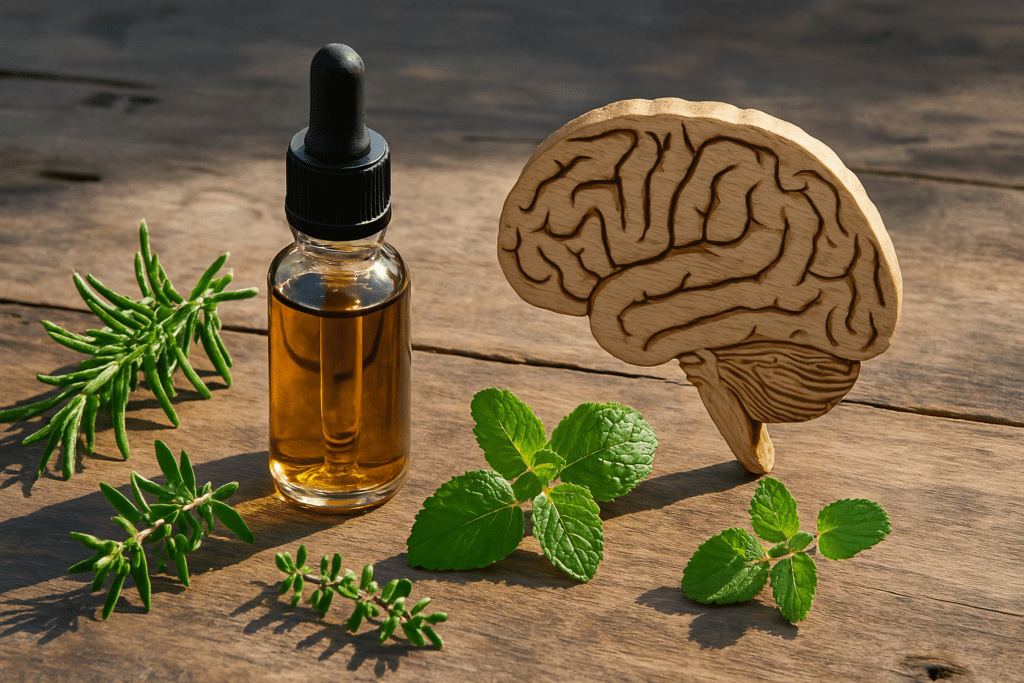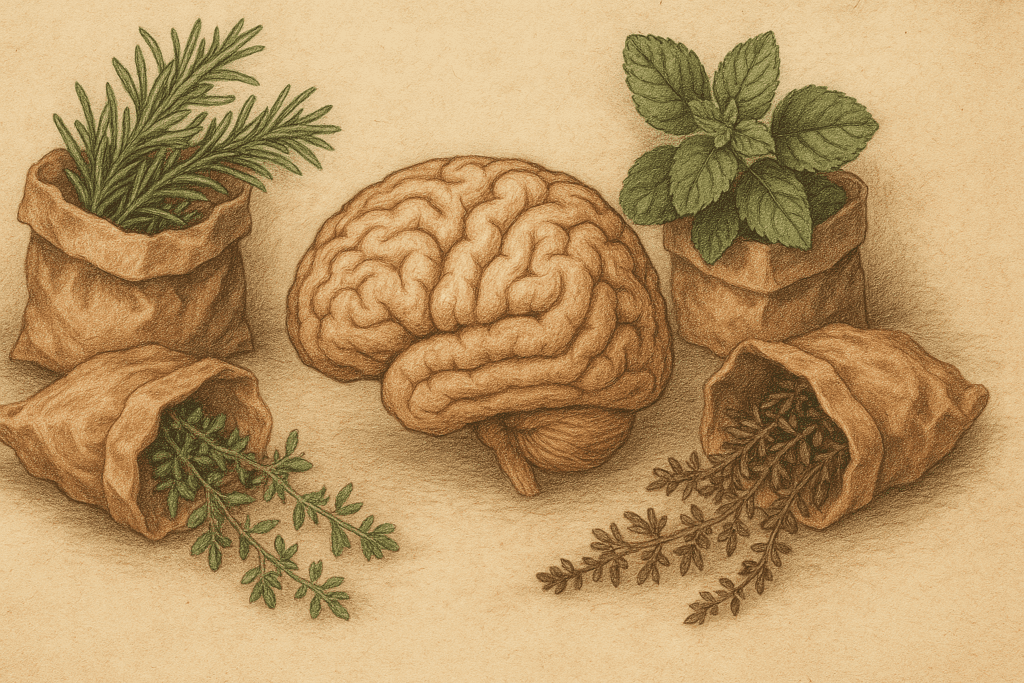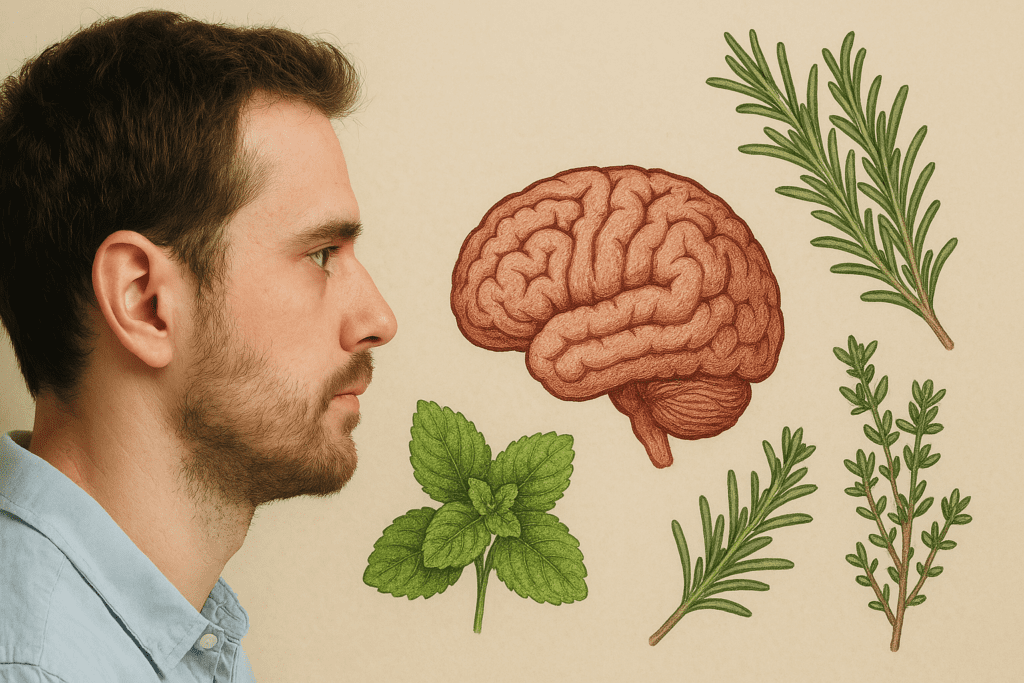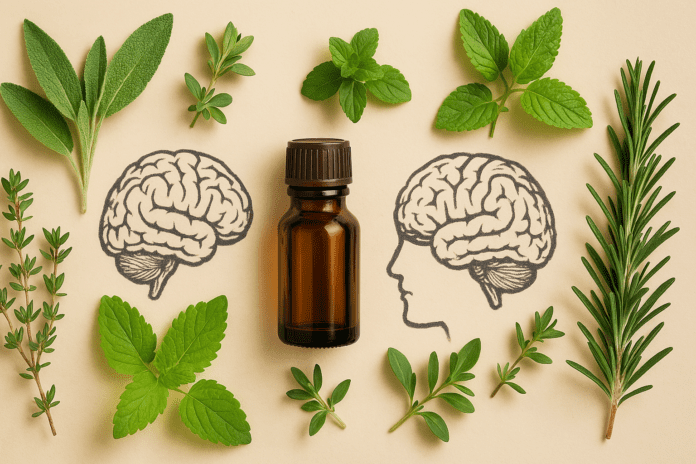Introduction: Understanding Natural Solutions for ADHD and Cognitive Focus
In a world that demands constant multitasking, quick decision-making, and relentless productivity, attention span has become one of the most valued yet elusive aspects of cognitive performance. For individuals living with Attention Deficit Hyperactivity Disorder (ADHD) or Attention Deficit Disorder (ADD), this challenge can feel magnified. While pharmaceutical interventions such as stimulants are often prescribed and can be highly effective, they also come with a suite of side effects and long-term concerns. As a result, an increasing number of adults and parents are turning to natural remedies—particularly herbs—to support attention, focus, and brain health. Exploring the best herbs for ADHD is not merely a trend; it’s a growing movement toward evidence-based integrative health.
This article offers a comprehensive, medically accurate, and SEO-optimized look at the most effective herbs for attention deficit disorder, drawing from scientific literature, traditional use, and modern clinical perspectives. By understanding how these herbs interact with the brain and nervous system, readers can make informed decisions to support cognitive wellness in both the short and long term.
You may also like: How to Improve Focus at Work Naturally: Science-Backed Techniques to Boost Mental Clarity and Long-Term Brain Health
What Is ADHD and How Does It Affect Cognitive Function?
Before diving into specific remedies, it is essential to understand the neurobiological landscape of ADHD. This condition is not simply a lack of focus; rather, it reflects a complex interplay between neurotransmitter imbalances, genetic predispositions, and environmental triggers. Dopamine and norepinephrine—two key neurotransmitters involved in attention regulation and executive functioning—are often dysregulated in individuals with ADHD.
This dysregulation can result in impulsivity, distractibility, forgetfulness, and difficulty sustaining mental effort. These symptoms do not always present uniformly and can vary in intensity depending on age, hormonal fluctuations, stress, and coexisting conditions such as anxiety or depression. As a result, treatment approaches must be multifaceted and individualized.
Pharmaceutical stimulants like methylphenidate and amphetamines aim to increase dopamine availability, but they may also lead to sleep disturbances, appetite suppression, and in some cases, emotional blunting. Consequently, many individuals are seeking natural approaches—especially herbal options—that can modulate attention without adverse side effects.
The Science Behind Herbal Medicine for Focus and Attention
The use of herbs in medicine dates back thousands of years and spans cultures around the globe. Many of the herbs currently being studied for their role in supporting ADHD symptoms have long histories in traditional Chinese medicine, Ayurveda, and European botanical practices. Recent advancements in neuroscience have brought renewed interest in validating these traditional remedies through clinical research.
Herbs can influence brain chemistry by modulating neurotransmitter systems, improving blood flow to the brain, reducing oxidative stress, and supporting neurogenesis. Several of the best herbs for ADHD demonstrate adaptogenic properties—meaning they help the body adapt to stress—and have been shown to impact focus, memory, and mood. By targeting the root causes of inattention and impulsivity, these herbs may offer sustainable improvements in cognitive performance.
Importantly, herbal interventions are not a one-size-fits-all solution. Dosage, preparation method, and bioavailability all affect efficacy. Moreover, the synergistic effects of combining multiple herbs or using them alongside lifestyle changes (like diet, exercise, and mindfulness) can significantly amplify their benefits. This article will delve into the most well-researched and clinically promising herbs for ADD ADHD to provide a science-backed guide for natural cognitive enhancement.
Ginkgo Biloba: Enhancing Blood Flow and Cognitive Clarity
One of the most widely recognized herbs for cognitive health, Ginkgo biloba is often cited among the best herbs for ADHD due to its ability to enhance cerebral circulation. Ginkgo contains flavonoids and terpenoids that act as potent antioxidants, reducing oxidative stress in the brain. More importantly, it improves blood flow to neural tissues, thereby enhancing oxygen and nutrient delivery.
In clinical trials, Ginkgo has shown promise in improving attention span, mental clarity, and working memory—key cognitive domains often compromised in ADHD. A study published in the Journal of Psychiatric Research found that children with ADHD who received Ginkgo supplementation experienced modest improvements in attention and impulse control compared to a placebo group. Although the improvements were not as pronounced as with stimulant medications, the herb was well-tolerated and free from stimulant-like side effects.
Another advantage of Ginkgo is its compatibility with other herbs. When combined with ginseng or bacopa, the cognitive-enhancing effects appear to be amplified. For individuals sensitive to stimulants or those seeking long-term cognitive support, Ginkgo offers a balanced and scientifically supported alternative.

Bacopa Monnieri: A Nootropic Herb with Deep Ayurvedic Roots
Known in traditional Ayurvedic medicine as Brahmi, Bacopa monnieri is a revered cognitive enhancer with adaptogenic properties. It supports mental clarity, enhances memory consolidation, and reduces anxiety—making it one of the most versatile herbs for attention deficit disorder. Bacopa’s active compounds, known as bacosides, have been shown to modulate dopamine and serotonin levels, two neurotransmitters crucial for mood and attention regulation.
One randomized controlled trial published in the journal Phytotherapy Research demonstrated that Bacopa significantly improved attention and cognitive processing in children diagnosed with ADHD. These improvements were attributed not only to its nootropic properties but also to its calming effect on the nervous system. Unlike many pharmaceutical treatments that may increase agitation, Bacopa appears to promote focused calm.
Furthermore, Bacopa exhibits neuroprotective effects, including enhanced synaptic communication and reduced neuroinflammation. This makes it a promising candidate for long-term cognitive health, especially when incorporated into a broader brain wellness regimen. Because it may take several weeks for its full benefits to manifest, consistency is key when using Bacopa as part of an herbal protocol.
Rhodiola Rosea: Balancing Stress and Supporting Mental Stamina
Often used to combat fatigue and enhance resilience to stress, Rhodiola rosea is an adaptogen that also holds promise as one of the best herbs for ADHD. Its primary active compounds—rosavins and salidroside—are known to influence dopamine and norepinephrine pathways. These neurotransmitters are intricately linked to attention, motivation, and emotional regulation.
Rhodiola may be particularly effective for individuals whose ADHD symptoms are exacerbated by stress or fatigue. By supporting the hypothalamic-pituitary-adrenal (HPA) axis, Rhodiola helps the body manage stress without causing sedation. This unique combination of energizing and calming effects makes it a valuable herb for daytime use, especially in academic or work settings that demand sustained focus.
Studies in adults have shown that Rhodiola can improve attention span, mental clarity, and even reaction time. While more research is needed to confirm its specific applications in ADHD populations, the preliminary data is promising. Importantly, Rhodiola is generally well-tolerated and unlikely to cause the jitteriness associated with stimulants, making it a gentle yet effective option.
Panax Ginseng: Revitalizing Mental Energy and Neuroplasticity
Another potent adaptogen with cognitive-enhancing properties, Panax ginseng has been used for centuries to boost mental stamina, reduce fatigue, and enhance memory. Ginsenosides, its primary active constituents, have been shown to support neuroplasticity—the brain’s ability to form and reorganize synaptic connections.
In the context of ADHD, Panax ginseng may help by promoting sustained attention and reducing mental fatigue. A double-blind, placebo-controlled study published in the Journal of Child Neurology found that children with ADHD who received ginseng supplementation showed significant improvements in attention and behavioral symptoms over an eight-week period. While not a replacement for conventional treatment, ginseng may be particularly beneficial as part of an integrative protocol.
The energizing effects of ginseng make it especially suitable for morning or midday use. However, because it can be overstimulating for some individuals, it should be introduced gradually and monitored for tolerance. When used thoughtfully, Panax ginseng stands out as one of the most dynamic herbs for ADD ADHD.
Gotu Kola: Promoting Neural Regeneration and Calm Focus
Less commonly discussed but equally potent is Gotu kola (Centella asiatica), an herb traditionally used in Ayurvedic and Chinese medicine to support brain function and mental clarity. Gotu kola has been shown to increase blood flow to the brain, support collagen synthesis in neural tissues, and enhance the production of brain-derived neurotrophic factor (BDNF), a protein involved in learning and memory.
What makes Gotu kola especially appealing for ADHD is its dual action of enhancing cognitive function while simultaneously reducing anxiety. This makes it suitable for individuals whose inattention is worsened by underlying nervous tension. Animal studies suggest that Gotu kola may improve working memory and spatial awareness, while human trials indicate it can reduce symptoms of anxiety and restlessness.
As one of the gentler herbs on this list, Gotu kola can be safely combined with other botanicals such as Bacopa or Rhodiola for synergistic effects. Its calming nature also makes it a strong candidate for evening use, especially for those with ADHD-related sleep disturbances or nocturnal rumination.
Lemon Balm and Passionflower: Calming Herbs for Hyperactivity and Restlessness
While many ADHD symptoms center around inattention, hyperactivity and impulsivity can also be major concerns—especially in children and adolescents. For these manifestations, calming herbs like lemon balm (Melissa officinalis) and passionflower (Passiflora incarnata) can be especially helpful.
Lemon balm has mild sedative and anxiolytic effects that help reduce nervousness and improve mood. Its ability to modulate GABA, a calming neurotransmitter, makes it useful for reducing hyperarousal and promoting mental clarity. Passionflower works similarly by enhancing GABA activity and reducing excessive neural excitability. When used in combination, these herbs can provide a gentle calming effect without sedation or cognitive dulling.
Clinical evidence suggests that lemon balm and passionflower may improve sleep quality, emotional regulation, and behavioral outcomes in individuals with ADHD. While not stimulating, they can create the internal calm necessary for focused attention to emerge naturally.
These herbs may be especially effective when integrated into bedtime routines or stressful transitions, such as before school or during emotionally charged situations. They offer a valuable complement to more stimulating herbs like Rhodiola or ginseng, creating a well-rounded herbal approach to ADHD management.

Lifestyle Synergy: Enhancing the Effects of Herbal Interventions
While herbs provide powerful tools for managing ADHD symptoms, their full potential is best realized when integrated into a broader lifestyle strategy. Nutrition plays a pivotal role in cognitive performance. Diets high in processed sugars and artificial additives can exacerbate hyperactivity, while those rich in omega-3 fatty acids, lean proteins, and antioxidant-rich vegetables can support neural stability and focus.
Regular physical activity also helps regulate neurotransmitter levels and reduce excess energy. Exercise has been shown to enhance dopamine and norepinephrine activity naturally, mirroring the effects of some ADHD medications. Additionally, mindfulness practices such as meditation and deep breathing can help train the brain to maintain focus and emotional regulation—further amplifying the benefits of herbal supplements.
Sleep is another cornerstone of ADHD management. Herbs like lemon balm and passionflower can support better sleep hygiene, but consistent sleep schedules and reduced screen time before bed are equally important. When these lifestyle changes are implemented alongside targeted herbal strategies, the outcome is often greater than the sum of its parts.
Frequently Asked Questions: Best Herbs for ADHD and Attention Deficit Disorders
1. Can herbal remedies replace prescription medications for ADHD?
While herbal remedies are increasingly recognized for their potential to support focus and emotional regulation, they are not typically considered direct replacements for prescription ADHD medications. Herbs for attention deficit disorder, such as Bacopa monnieri and Rhodiola rosea, may work through different mechanisms than stimulant drugs like Adderall or Ritalin. These herbs often act more gradually, supporting neurotransmitter balance and stress resilience over time rather than offering immediate symptom relief. However, in milder cases or under professional supervision, some individuals may choose to rely solely on the best herbs for ADHD, especially when side effects from medications become problematic. It’s crucial to approach this transition with caution, as abrupt discontinuation of pharmaceutical treatments can cause rebound symptoms or emotional instability. A healthcare provider familiar with both herbal and conventional treatments can help design a gradual, tailored approach that may include herbs for ADD ADHD alongside or instead of medications, depending on the individual’s needs and response.
2. How long does it typically take to see results from using herbs for ADHD?
Herbal treatments for ADHD often require a longer time frame to exhibit noticeable benefits compared to pharmaceutical stimulants. Most individuals using the best herbs for ADHD report observable improvements after consistent use over a period of four to twelve weeks. This timeline depends heavily on factors such as the individual’s metabolism, dosage, the specific herb being used, and the presence of other supportive habits like improved sleep, nutrition, and stress management. Bacopa monnieri, for instance, may take several weeks to build up in the system and influence memory and focus, while adaptogens like Rhodiola rosea may offer mild short-term cognitive benefits within days. One common mistake is discontinuing herbs prematurely due to impatience, even when they are starting to produce subtle, positive changes. Patience and consistency are essential when integrating herbs for attention deficit disorder into a wellness routine, especially when aiming for sustainable improvements rather than quick fixes.
3. Are there any potential side effects or interactions when using herbs for ADD ADHD?
Though generally considered safe when used properly, herbs for ADD ADHD are not without the potential for side effects or interactions. For instance, Ginkgo biloba can thin the blood and may increase the risk of bleeding when taken with anticoagulant medications, while Panax ginseng might elevate blood pressure or interfere with hormone-sensitive conditions. Individuals sensitive to caffeine or stimulants may find Rhodiola rosea or ginseng overstimulating, especially in high doses or when taken late in the day. The best herbs for ADHD can interact with medications for anxiety, depression, and cardiovascular conditions, which makes medical supervision critical when combining these treatments. Additionally, quality control is essential, as herbal supplements are not regulated as strictly as pharmaceuticals. Consumers should seek out third-party tested, high-quality formulations and work with a qualified healthcare provider to ensure safety, especially when combining multiple herbs for attention deficit disorder or using them alongside conventional treatments.
4. Can children and adolescents safely use herbs for ADHD, and if so, which are best?
Children and adolescents may benefit from certain herbs for ADD ADHD, but age-appropriate dosing and professional supervision are vital. Not all herbs that are safe for adults have been sufficiently studied in younger populations. Bacopa monnieri has shown particular promise in pediatric research, with several studies indicating improvements in attention span and cognitive processing in school-aged children. Lemon balm and passionflower, which exert gentle calming effects, are often used to reduce anxiety and restlessness in children without causing sedation or cognitive dulling. The best herbs for ADHD in younger individuals are typically those with a history of safe pediatric use and minimal side effect profiles. Still, it’s crucial to introduce these herbs gradually, monitor for any changes in behavior, sleep, or appetite, and avoid combining them with medications unless under the care of a pediatric integrative medicine practitioner.
5. Do certain herbs work better for inattentive vs. hyperactive ADHD symptoms?
Yes, specific herbs may be more suitable for different ADHD symptom subtypes. Individuals with predominantly inattentive symptoms often benefit from cognitive-enhancing herbs like Bacopa monnieri or Gotu kola, which support memory consolidation and mental clarity without overstimulation. In contrast, those experiencing hyperactivity or impulsivity may respond better to calming herbs such as lemon balm or passionflower, which help modulate overstimulated nervous systems through their effects on GABA pathways. Rhodiola rosea may offer benefits across both symptom types due to its dual action of enhancing mental stamina and reducing stress-induced distractibility. Choosing the best herbs for ADHD involves a nuanced understanding of symptom presentation, underlying mood patterns, and individual lifestyle factors. A personalized approach allows for the strategic use of herbs for attention deficit disorder to target specific challenges rather than relying on a one-size-fits-all remedy.
6. How can lifestyle habits enhance the effectiveness of herbs for ADHD?
Lifestyle factors can profoundly influence how well herbs for ADD ADHD perform. For instance, a diet high in processed sugars and artificial dyes can exacerbate attention problems and counteract the benefits of even the best herbs for ADHD. By contrast, diets rich in omega-3 fatty acids, complex carbohydrates, and leafy greens can help stabilize blood sugar and support neurotransmitter balance, complementing herbal interventions. Regular exercise has been shown to increase dopamine and norepinephrine levels, which herbs like Rhodiola or Panax ginseng may further enhance. Sleep quality is equally crucial, as many herbs for attention deficit disorder work more effectively when the brain is well-rested and primed for focus. Incorporating mindfulness practices or behavioral therapy alongside herbal strategies creates a synergistic effect, allowing the body and brain to respond more robustly to natural treatments.
7. Are there any emerging herbs or novel compounds being studied for ADHD support?
Emerging research continues to explore lesser-known botanicals and novel plant-derived compounds for cognitive enhancement and ADHD management. One example is saffron, a spice traditionally used in Persian medicine, which has shown comparable efficacy to Ritalin in small-scale studies with fewer side effects. Another developing area involves adaptogenic mushrooms like Lion’s Mane (Hericium erinaceus), known for supporting neurogenesis and potentially aiding long-term cognitive resilience. These novel herbs for ADD ADHD represent an exciting frontier in natural brain health, especially as researchers isolate bioactive compounds with specific effects on dopamine or BDNF pathways. While these herbs are not yet classified among the best herbs for ADHD due to limited clinical evidence, early findings suggest they may eventually play a significant role in integrative treatment plans. Continued research and better-standardized preparations are needed before they become mainstream, but their potential is noteworthy.
8. Can combining multiple herbs enhance results, or is it better to use one at a time?
There’s growing support for the idea that combining complementary herbs can lead to greater therapeutic synergy than using a single herb in isolation. For example, stacking Bacopa monnieri with Rhodiola rosea may enhance both memory and mental stamina, targeting multiple ADHD-related deficits simultaneously. However, careful formulation is necessary to avoid over-supplementation or interactions, especially for those taking herbs for attention deficit disorder alongside prescription medications. Some individuals start with one herb to gauge tolerance and then gradually introduce others in a layered approach. This strategy allows for monitoring which combinations yield the most benefit while minimizing unwanted effects. The best herbs for ADHD often function more powerfully when used in well-thought-out combinations that account for timing, lifestyle, and individual physiology, making professional guidance invaluable.
9. Are there specific times of day that are best for taking herbs for ADD ADHD?
Timing plays a critical role in maximizing the effectiveness of herbs for ADD ADHD. Stimulatory herbs like Rhodiola or Panax ginseng are best taken in the morning or early afternoon to avoid interfering with sleep. Conversely, calming herbs such as lemon balm or passionflower may be more beneficial in the evening or during high-stress transitions, such as before school or important meetings. Bacopa monnieri can be taken in the morning or evening depending on how the individual responds—some find it energizing while others find it relaxing. Creating a structured herbal routine that aligns with the body’s natural rhythms allows the best herbs for ADHD to work more harmoniously with circadian cycles. This mindful scheduling can amplify benefits while minimizing side effects like fatigue or restlessness.
10. What are the long-term benefits of using herbs for ADHD beyond symptom control?
Beyond managing immediate symptoms like distractibility or impulsivity, herbs for ADD ADHD can contribute to long-term brain health and resilience. Many herbs, including Bacopa and Gotu kola, promote neurogenesis and protect neurons from oxidative damage, which may have implications for cognitive aging and the prevention of neurodegenerative diseases. Adaptogens like Rhodiola support adrenal health and stress response systems, fostering a more balanced nervous system over time. When integrated into a consistent wellness strategy, the best herbs for ADHD can help cultivate emotional stability, enhance executive function, and improve one’s overall quality of life. This long-range perspective reframes herbs not just as short-term symptom managers but as part of a preventive model for sustained cognitive vitality and psychological well-being.

Conclusion: Choosing the Right Herbal Strategy for ADHD and Long-Term Brain Health
In navigating the complexities of ADHD and attention deficit disorders, it becomes clear that no single solution fits all. However, the growing body of research on herbal medicine offers compelling evidence that specific botanicals can significantly support cognitive function, attention, and emotional regulation. From the circulation-boosting effects of Ginkgo biloba to the neuroprotective properties of Bacopa monnieri, the best herbs for ADHD work in multifaceted ways to restore balance and promote mental clarity.
Moreover, these herbs are not only tools for symptom relief but also valuable allies in the quest for long-term brain health and resilience. As part of a holistic strategy that includes nutrition, movement, mindfulness, and adequate rest, herbal medicine offers a sustainable path to enhancing focus and well-being. Importantly, anyone considering herbal supplements should consult with a qualified healthcare provider, especially when combining herbs with prescription medications.
By choosing carefully among these evidence-based herbs for attention deficit disorder, individuals and families can empower themselves with natural tools to manage ADHD while nurturing cognitive vitality. As science continues to explore the power of plant-based medicine, we are reminded that nature’s pharmacy has long held answers to the challenges of modern brain health.
In sum, for those seeking alternative or complementary treatments, these herbs for ADD ADHD offer not only symptomatic relief but also a deeper sense of balance and clarity—an essential foundation for a thriving mind in today’s fast-paced world.
natural focus remedies, herbal supplements for concentration, cognitive enhancement herbs, adaptogens for mental clarity, brain-boosting botanicals, alternative treatments for adhd, natural remedies for attention, plant-based nootropics, herbal brain support, focus-enhancing herbs, holistic adhd support, integrative medicine for adhd, botanicals for cognitive health, mental performance herbs, calming herbs for kids, attention improvement naturally, herbal solutions for focus issues, herbal approaches to neurodiversity, herbs for cognitive wellness, natural alternatives to adhd medication
Further Reading:
6 Powerful Herbs for Managing ADHD Symptoms Naturally
Best Herbs for ADHD: Natural Remedies to Improve Focus and Attention
Disclaimer
The information contained in this article is provided for general informational purposes only and is not intended to serve as medical, legal, or professional advice. While Health11News strives to present accurate, up-to-date, and reliable content, no warranty or guarantee, expressed or implied, is made regarding the completeness, accuracy, or adequacy of the information provided. Readers are strongly advised to seek the guidance of a qualified healthcare provider or other relevant professionals before acting on any information contained in this article. Health11News, its authors, editors, and contributors expressly disclaim any liability for any damages, losses, or consequences arising directly or indirectly from the use, interpretation, or reliance on any information presented herein. The views and opinions expressed in this article are those of the author(s) and do not necessarily reflect the official policies or positions of Health11News.


